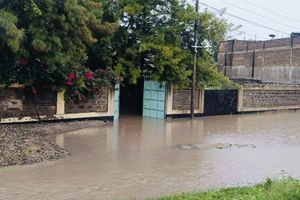Kenya records slowest growth in over 10 years

A combination of a weak shilling, high food and fuel prices saw the country report the slowest pace of growth since the end of 2009. Photo/FILE
The woos of the Kenyan economy deepened on Wednesday after the full impact of high inflation and a weak shilling saw the country report the slowest pace of growth since the end of 2009.
Latest government data show that the country’s economic growth slowed down to 3.6 per cent in the third quarter of the year from 5.7 per cent reported in a similar period last year.
This is a 35 per cent decline and a second back to back slowdown.
The Kenya National Bureau of Statistics (KNBS) says that economic slowdown that started in the second quarter of 2011 spilled to the third Quarter.
In the second quarter, the economy expanded by 4.1 per cent down from the 4.6 per cent recorded in a similar period in 2010.
“A number of factors, in particular the sharp rise in oil and food prices, have constrained growth since the start of the second quarter. The quick rise in oil prices emanated from supply disruption associated with political unrest in a number of oil producing countries, while the increase in food prices resulted mainly from supply constraints and rise in global commodity prices,” said KNBS latest economic update.
KNBS says as a result of these price hikes, inflation averaged at over 16.0 per cent during the period under review.
This now promises lower profitability of companies that would result in lesser jobs being created in the economy at a time when the country is facing one of its greatest labour unrest in the past decade.
In the period under review, most of the sectors of the economy registered slower growths during compared to last year indicating that the effects of the slowdown had started spreading across the economy.
Slowed growths were mainly manifested in the electricity and water, wholesale and retail trade and manufacturing sectors.
During the period, electricity and water contracted by 12.1 per cent compared to an expansion of 17.1 per cent realised during a similar quarter in 2010.
This was principally due to increased generation of thermal electricity, which is much more expensive to produce compared to hydro and geothermal generation.
Growth in the wholesale and retail trade slowed to 1.3 per cent during the review period compared to 4.7 per cent growth during a similar quarter in 2010.
“The decelerated growth in this sector is attributable to sluggish trade on account of reduced domestic demand arising from the inflationary pressures,” read the report.




